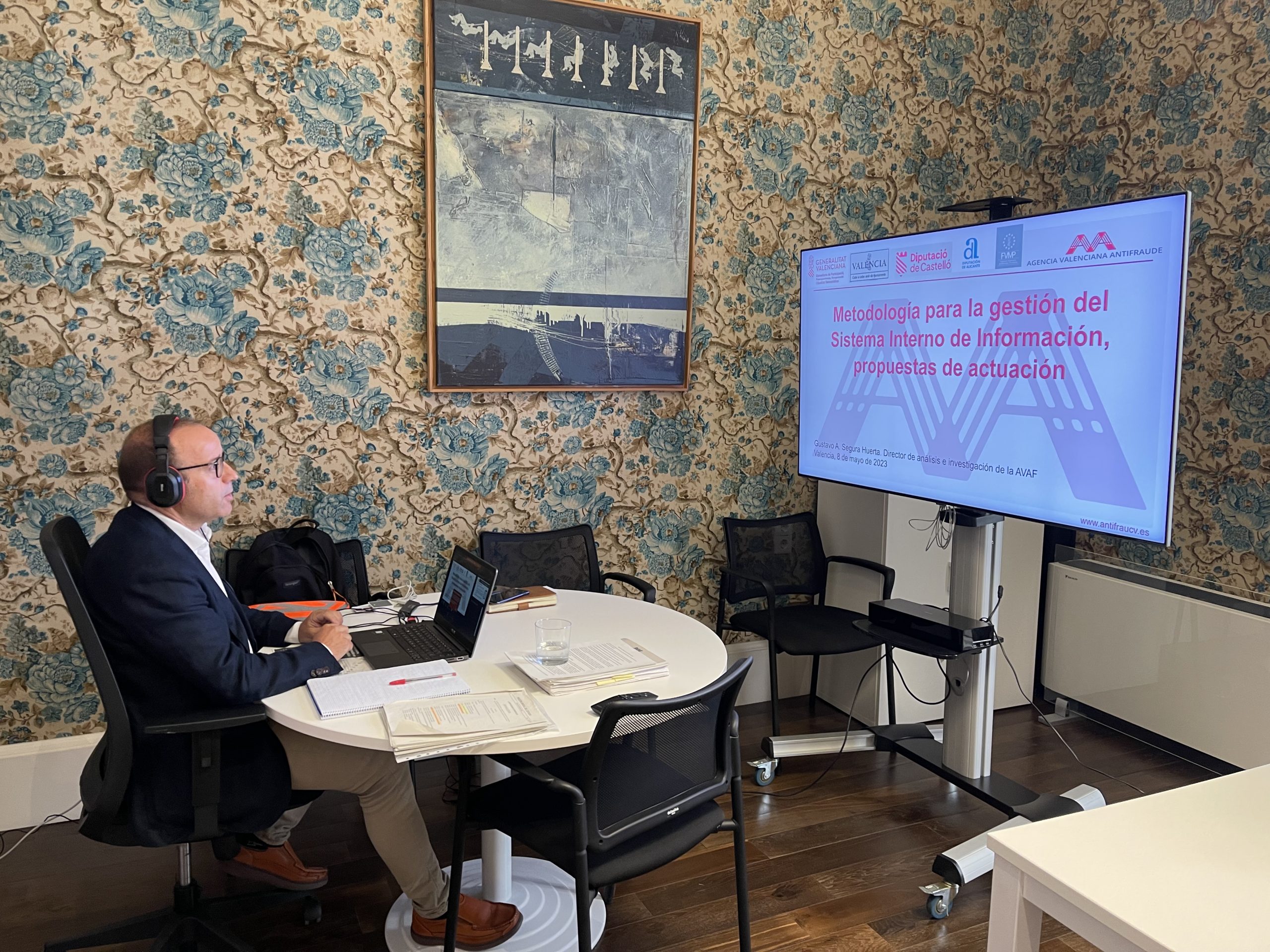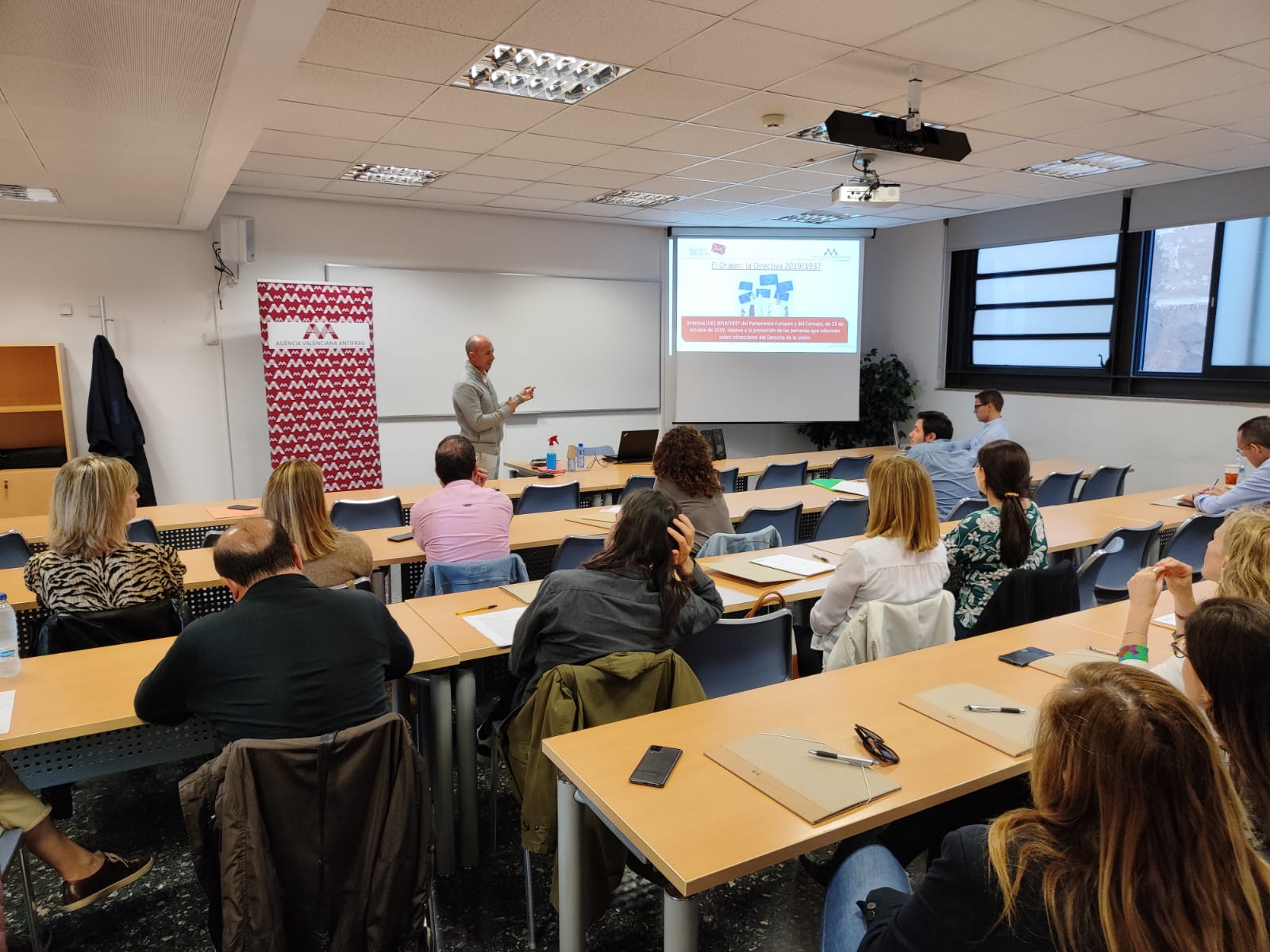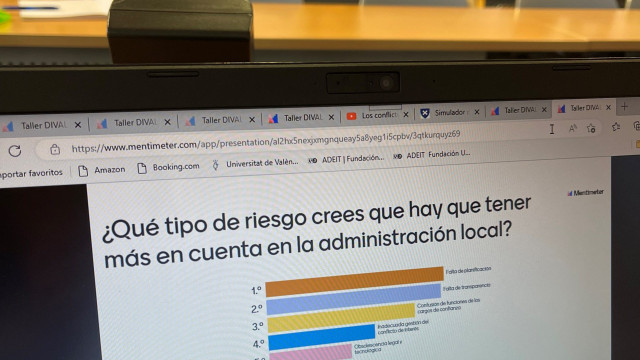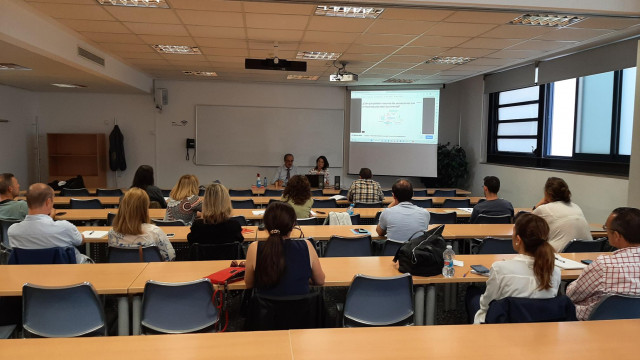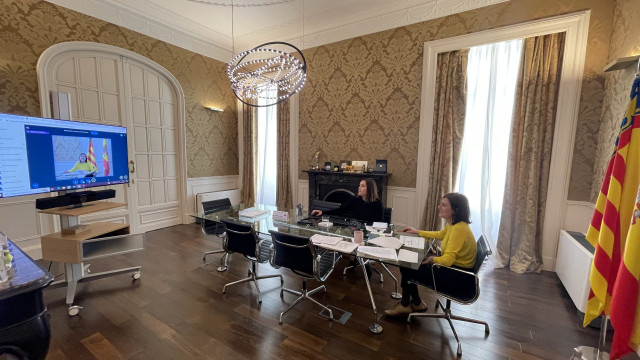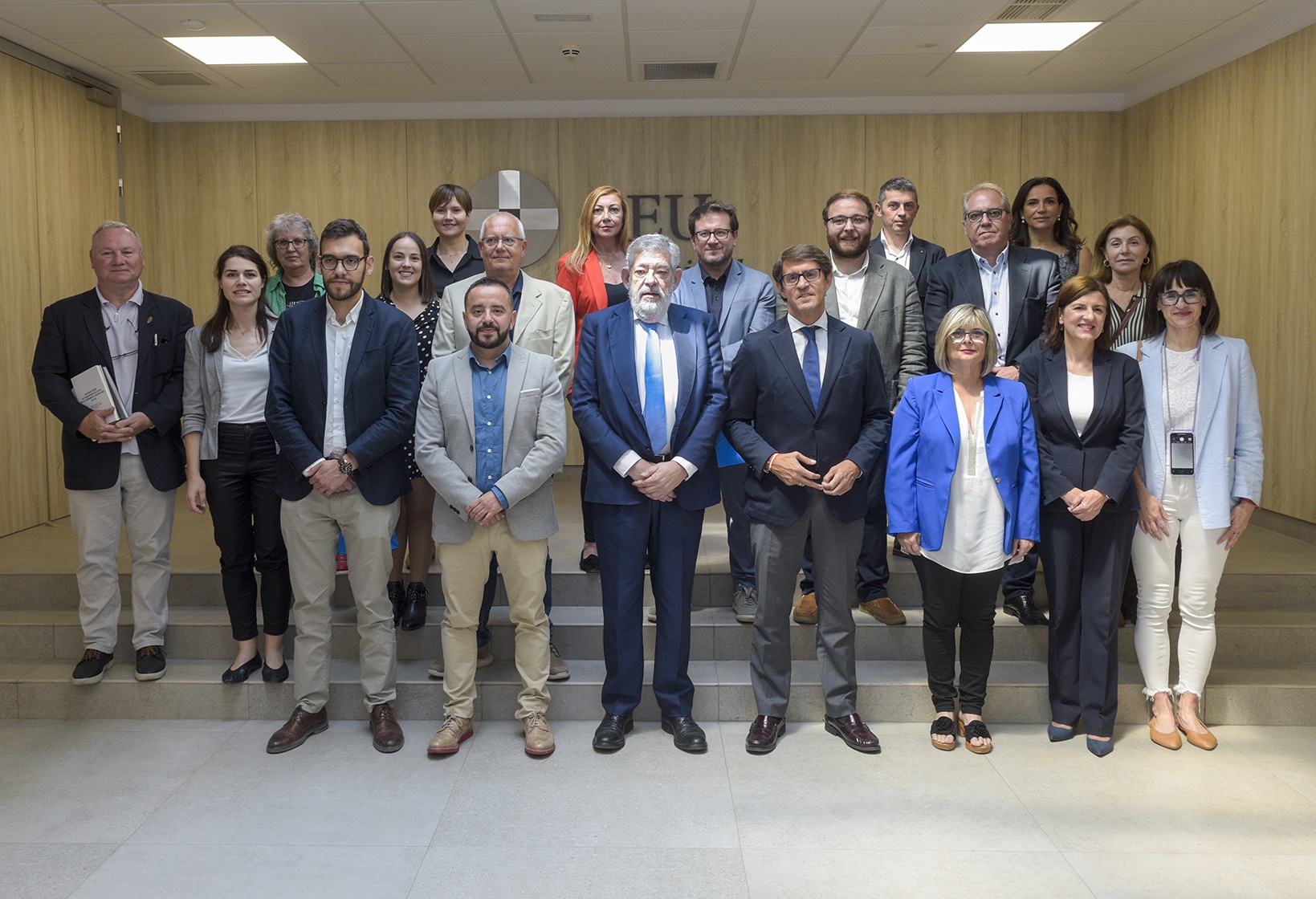Valencia, May 5, 2023.- The Cardenal Herrera-CEU University has delivered the Infoparticipa 2022 Seals to the quality and transparency of local public communication in the Valencian Community. The municipalities of Onda, Vall d’Uxó, Gandia, València, Elx, Santa Pola, Dénia and the Provincial Councils of Valencia and Alacant have complied in 2022 with the indicators required for the granting of these recognitions.
The award ceremony was attended by the Rector of the Cardenal Herrera CEU University, Vicente Navarro; the regional secretary of Participation and Transparency of the Generalitat Valenciana, Antoni Llorente; and the deputy director and legal affairs of the Valencian Anti-Fraud Agency, Teresa Clemente.
The Infoparticipa Seals are awarded in the Valencian Community by the Observatory of Governance, Transparency and CSR of the CEU UCH, together with the ComSET Research Group (Sound, Strategic and Transparency Communication) of the Universitat Autònoma de Barcelona (UAB), following the methodology of the Infoparticipa Map, where the results of the analysis of 52 indicators are integrated into the websites of the municipalities and councils of the Valencian Community. This is the fifth edition of the study, carried out by researchers at the CEU UCH Observatory.
The act of delivery of the Infoparticipa Stamps corresponding to 2022, held this morning at CEU UCH, has been attended by the mayor of Dénia, Vicente Grimalt; the mayor of Santa Pola, Loreto Serrano; the head of Transparency of the Diputació de València, Magdalena Ramírez; the deputy of the area of Transparency in the Diputación de Alacant, Juan de Dios Navarro; the coordinator of Transparency of the City of Elx, José Antonio Galiano, together with councilors and technical staff of all the awarded consistories.
In this edition, 7 municipalities of the 542 analyzed have exceeded 75% compliance with the 52 transparency and participation indicators under analysis on their websites, only one more than in the previous edition. Two are from the province of Castellón, two from Valencia and three from Alicante. The Observatory of the CEU UCH has also analyzed the websites of the three provincial councils of the Valencian Community: those of Valencia and Alacant maintain the quality and transparency of the information on their websites and once again obtain the Infoparticipa Seal.
Beyond the municipalities distinguished with the Infoparticipa Seals, in 2022 only 20 consistories of the Valencian Community have exceeded 50% of transparency indicators on their websites: 13 in Valencia, 4 in Castellón and 3 in Alicante. Still 95% of Valencian municipalities are still below 50%: in 100 municipal websites between 25 and 49% of the transparency indicators are met, 14 less than in the 2021 edition. And 415 municipal websites remain below 25% compliance in transparency indicators.
This analysis of transparency indicators on the websites of Valencian local entities is carried out annually by researchers from the Observatory of Governance, Transparency and CSR of CEU UCH. His work is part of the R + D + i Project of the Ministry of Science and Innovation (MICIN) entitled “Ethics and Self-regulation of Social Communication: Content analysis of the 2nd Generation Ethical Codes and elaboration of Protocols and Guides for its implementation CETICOM-2G” (Ref. PID2021-124969NB-I00) and also of the AICO.2021/212 Project of the Ministry of Innovation, Universities, Science and Digital Society of the Generalitat Valenciana.
 Javier Alama, head of the Information Systems service, shared the tool used to create the internal channel for receiving information in all entities required by the new law. During his presentation, he highlighted the need for training and training for the management of the tool, together with the promotion of an ethical culture, encouraging the presentation of complaints and awareness and awareness campaigns.
Javier Alama, head of the Information Systems service, shared the tool used to create the internal channel for receiving information in all entities required by the new law. During his presentation, he highlighted the need for training and training for the management of the tool, together with the promotion of an ethical culture, encouraging the presentation of complaints and awareness and awareness campaigns.

